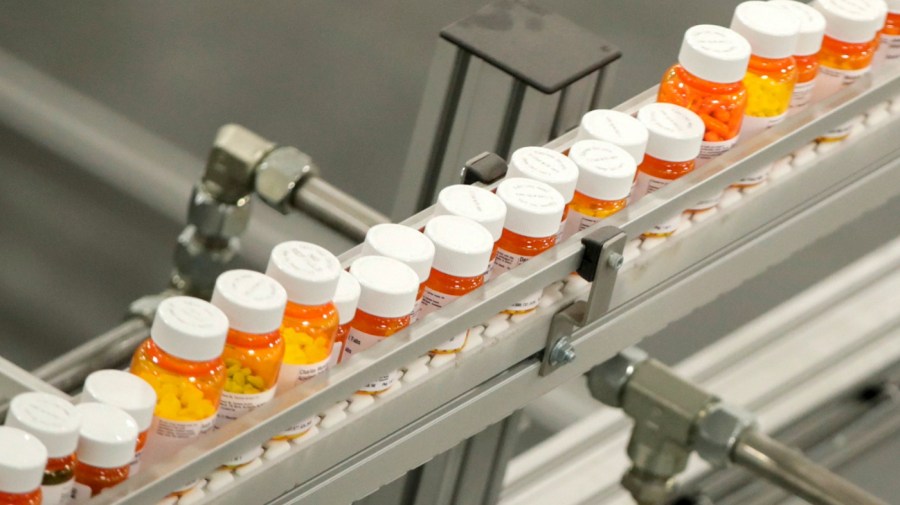A new survey found that a majority of voters are in favor lawmakers and candidates who they believe will take on Big Pharma price-gouging with most saying they’re in favor of President Trump’s “most favored nation” policy.
In a survey commissioned by the Pharmaceutical Reform Alliance and conducted by National Research Inc., 85 percent of voters said prescription medications have gotten more expensive and nearly the same percentage of participants said pharmaceutical companies carried the most blame for the high cost.
When asked about their voting choices, 86 percent said they were more likely to support a candidate who “wants to force Big Pharma to lower prescription medication costs for American consumers” while 78 percent said they were less likely to support a candidate who accepted donations from Big Pharma.
Overall, 90 percent of participants agreed with this statement: “Congressional candidates should stop taking large political donations from Big Pharma because it is a conflict of interest.”
During the 2024 election cycle, pharmaceutical and health product political action committees donated over $16 million to campaigns.
“Americans are speaking loudly and clearly, so it’s important for Congress to listen: the time to join President Trump in lowering prescription drug costs is NOW. From coast to coast, the American people are suffering from high prescription costs, and they rightly blame Big Pharma. Simply stated, it’s time for Big Pharma to put America first…not last,” PRA spokesman and former Rep. J.D. Hayworth (R-Ariz.) said in a statement.
“No doubt those currently serving on Capitol Hill are hearing the same message from their constituents. With the 2026 primary season ahead, those in the House and Senate need to take action. Voters are watching,” he added.
The survey highlighted Trump’s executive order that enacted “most favored nation” drug pricing as an example of efforts to reduce prescription drug costs. The executive order directs the Department of Commerce and the U.S. Trade Representative Jamieson Greer to take “all appropriate action” against “unreasonable and discriminatory” policies in foreign countries that suppress drug prices abroad.
Health and Human Services Secretary Robert F. Kennedy Jr. will set “clear targets” for prescription drug and pharmaceutical price reductions within 30 days per the order.
When asked about how they felt regarding the “most favored nation” policy, 78 percent said they supported the policy, which included 61 percent of Democrats, 77 percent of independent voters and 96 percent of Republicans.
Republican participants were asked to pick between Trump; Kennedy and his “make American health again” agenda; or Congress when it came to whom they trusted to “force Big Pharma to lower their costs for prescription medicine.” Trump received the highest vote of confidence with 46 percent of GOP voters picking him, 14 percent picked Kennedy and only two percent picked Congress.
Other changes that garnered support in the survey were restrictions on direct-to-consumer prescription medication ads and 78 percent agreed it was a conflict of interest for news networks to run such ads as they’re covering health care issues.
The survey was conducted from May 28 to June 1 and included 1,000 registered voters. The results have a margin or error of plus or minus 3.1 percentage points at the 95 percent confidence interval. Among participants, 35 percent were Republican, 33 percent were Democrat and 32 percent were independent.

